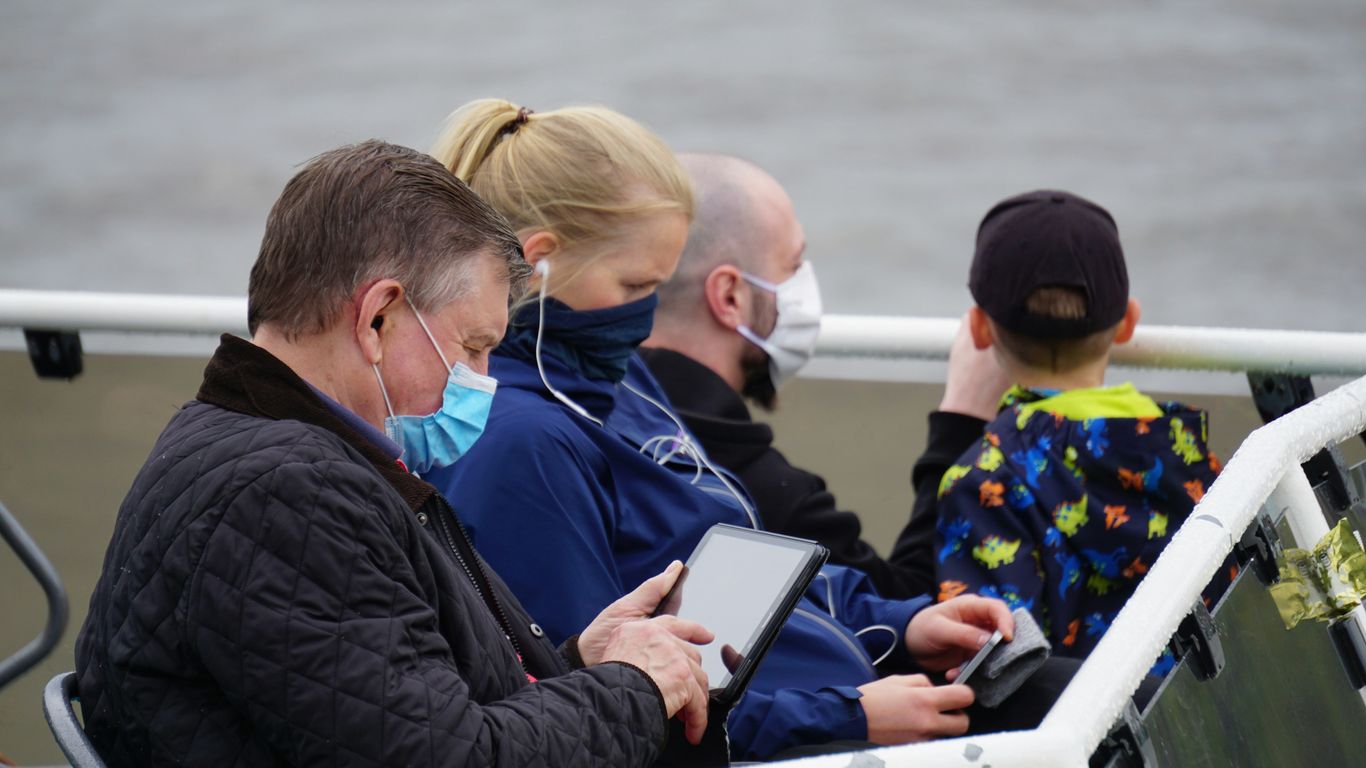Thinking about a family vacation that’s more than just a beach trip? Imagine your family actively helping scientists understand our oceans, all while exploring incredible marine environments. Private marine biology trips offer just that – a chance to get hands-on with conservation and discovery, creating memories that truly matter. It’s a unique way to see the world and contribute to its well-being.
Key Takeaways
- Private marine biology trips let families participate in real scientific research at sea.
- These experiences offer hands-on learning about marine ecosystems and conservation efforts.
- Travelers contribute valuable data to scientific projects, aiding in environmental protection.
- Expert guidance from marine biologists ensures a safe and educational adventure for all ages.
- These trips create lasting family memories while fostering a connection to the natural world.
Embark on a Private Marine Biology Adventure
Forget the usual tourist traps; imagine stepping onto a boat not just for a day out, but to actively join a real scientific mission. That’s the heart of a private marine biology trip for families. It’s about trading passive sightseeing for active participation in understanding and protecting our oceans.
Discover the Thrill of Citizen Science at Sea
This isn’t your average vacation. You’re becoming part of something bigger, contributing to actual research. Think of it as a hands-on science class, but your classroom is the vast, blue ocean. You’ll be working alongside marine biologists, learning how they collect data and what that data tells us about the health of marine life and their homes. It’s a chance to see the ocean through a scientist’s eyes, understanding the delicate balance of these ecosystems.
Tailored Experiences for Discerning Families
These trips are designed with families in mind, meaning they cater to different ages and interests. Whether your kids are fascinated by colorful fish or you’re keen to learn about coral health, the itinerary can be adjusted. It’s about creating an experience that’s both educational and genuinely fun for everyone involved. You get to choose what aspects of marine biology you want to focus on, making it a truly personal adventure.
Beyond Tourism: Contributing to Conservation
What sets these trips apart is the direct impact you can have. You’re not just a visitor; you’re a temporary member of a research team. This means your activities contribute to real conservation efforts.
Here’s a glimpse of what that might look like:
- Data Collection: Helping record fish populations or monitor coral conditions.
- Habitat Monitoring: Assisting in surveys of marine life and their environments.
- Restoration Support: Participating in activities like coral planting or removing invasive species.
This kind of travel offers a unique way to connect with nature, providing a sense of purpose that goes beyond typical holiday experiences. It’s about making memories while making a difference.
Engage Directly with Marine Ecosystems
Hands-On Data Collection with Experts
Forget just looking; this is about doing. When you join a private marine biology trip, you’re not just a tourist. You’re part of the research team. You’ll work alongside experienced marine biologists, getting your hands dirty, so to speak, with real scientific tasks. This could mean anything from logging sightings of specific marine animals to helping with coral health checks. It’s a chance to contribute to ongoing conservation efforts, like assisting with coral planting or removing invasive species that harm the reef. You’ll learn how to collect data accurately, using tools and methods that scientists rely on every day. It’s a practical way to see conservation in action and feel like you’re making a tangible difference.
Understanding Coral Reef Health
Coral reefs are vibrant cities of the sea, but they’re facing tough times. On these trips, you’ll get a close-up look at what keeps them healthy and what threatens them. You might help monitor coral growth in nurseries, which are like underwater kindergartens for baby corals. Or perhaps you’ll be involved in surveys that assess the impact of things like pollution or rising sea temperatures. You could be recording the percentage of sand, algae, or dead coral in a specific area, or noting the presence of certain fish species. This kind of information is super important for scientists trying to protect these delicate environments. It’s amazing how much you can learn just by observing and recording.
Monitoring Marine Life and Habitats
Every creature and every patch of seabed tells a story. Your role might involve helping to document the diversity of fish in a particular spot. Imagine spending ten minutes at a specific reef location, counting every fish of a certain species you see. Or maybe you’ll be tasked with identifying and recording different types of algae or invertebrates. These observations build a picture of the ecosystem’s health. You might even help track the movement of larger animals or assess the condition of seagrass beds. It’s about contributing to a bigger database that helps scientists understand how these habitats are changing and what needs to be done to protect them. It’s a unique way to connect with the ocean and its inhabitants, turning a vacation into a meaningful contribution to marine conservation.
Here’s a glimpse of what you might do:
- Complete sighting reports for marine park authorities.
- Assist guides in surveying reef locations.
- Monitor coral planting activities.
- Record data on substrate composition (sand, algae, rock).
Being on the water and actively participating in data collection provides a perspective that simply reading about marine life can’t match. It connects you directly to the challenges and successes of conservation work.
The Value of Citizen Science Expeditions
Why Private Marine Biology Trips Are Rising
People are really looking for something more than just a vacation these days. They want to connect with places, not just see them. That’s why trips where you can actually help out with research are getting popular. It’s about getting your hands dirty, so to speak, and feeling like you’re part of something bigger. These kinds of adventures let you contribute to science while you’re exploring some of the most amazing spots on the planet. It’s a way to make your travel time count for more than just personal enjoyment; you’re actively helping scientists gather data from places that are hard to reach. This collaboration between travelers and researchers makes reaching these remote areas possible and helps fund important work.
Meaningful Contributions to Scientific Understanding
When you join a citizen science expedition, you’re not just a tourist; you’re a participant. You help collect real data that scientists use. For example, tracking whale movements or documenting coral health provides information that helps us understand these ecosystems better. This hands-on involvement means you’re directly contributing to scientific knowledge. Think about it: the sheer amount of data collected by many people over time can paint a much clearer picture than a single research team could manage alone. This helps in spotting changes in the environment early on, like the spread of invasive species, before they become major problems. It’s a way to be part of long-term conservation efforts.
Connecting Families with the Natural World
These trips are fantastic for families. They offer a chance for everyone, kids and adults alike, to learn together in a really engaging way. Instead of just reading about marine life, you’re out there observing it firsthand. This kind of experiential learning sticks with you. It can spark a lifelong interest in nature and conservation, especially for younger family members. Seeing a family work together to identify a species or record data creates shared memories that last. It’s about building a connection to the ocean and its inhabitants that goes beyond a typical holiday experience. It’s a chance to see the world through a scientist’s eyes, even if just for a little while.
| Activity Type | Data Collected |
|---|---|
| Coral Reef Surveys | Coral health, species counts, bleaching levels |
| Marine Mammal Sightings | Species identification, location, behavior |
| Water Quality Testing | Temperature, salinity, pH levels |
Expert Guidance for Your Expedition
Led by Experienced Marine Biologists
When you sign up for a private marine biology trip, you’re not just going on a boat ride; you’re joining a team of dedicated scientists and guides. These aren’t your average tour operators. They’re folks who have spent years studying the ocean, understanding its delicate balance, and often, actively working on conservation projects. They know the reefs, the currents, and the creatures like the back of their hands. Their knowledge transforms a simple outing into a real learning experience. You’ll get to ask questions and get actual answers from people who live and breathe marine science. It’s a chance to see the underwater world through the eyes of someone who truly understands it.
Master Reef Guides: Guardians of the Great Barrier Reef
For those heading to Australia’s iconic Great Barrier Reef, you might be guided by a Master Reef Guide. Think of them as the top-tier experts for this specific World Heritage site. They’re not only skilled in spotting marine life and explaining reef health but are also passionate storytellers. They can point out the subtle signs of a healthy reef versus one that’s struggling. They’re trained to share the wonders of the reef in a way that’s both informative and engaging for everyone, from the youngest family member to the oldest. It’s a special kind of guidance that comes from deep local knowledge and a commitment to the reef’s future. You can even find these guides offering specialized eco-tours focused on conservation efforts.
Ensuring Safety and Educational Enrichment
Safety is always the top priority, especially when you’re out on the water and exploring underwater environments. Your guides are typically certified professionals, often with advanced training in first aid and water safety. They’ll go over all the necessary procedures before you get in the water, making sure everyone feels comfortable and prepared. Beyond safety, the educational aspect is paramount. They aim to make complex scientific concepts accessible and fun. You might participate in activities like:
- Counting specific fish species to track populations.
- Assessing coral cover using simple visual surveys.
- Identifying different types of algae and their impact on the reef.
These hands-on activities are designed to be educational without feeling like a classroom lesson. It’s about learning by doing, contributing to real research, and having a fantastic time doing it. You can even find programs that focus on creating unforgettable family vacations with these elements built-in.
The guides are there to make sure you not only have a safe and enjoyable time but also leave with a greater appreciation for the marine environment and a clear understanding of how you can help protect it. They bridge the gap between scientific research and public participation, making everyone feel like a valued part of the conservation effort.
Unforgettable Family Experiences
Learning Opportunities for All Ages
These trips aren’t just for the grown-ups; they’re designed so everyone in the family can get involved. Kids can learn about marine life in a way that textbooks just can’t match. Imagine your children pointing out different types of coral or identifying fish species alongside actual scientists. It’s hands-on learning that sticks. We’ve seen families where the youngest members become the most enthusiastic data collectors, surprising everyone with their sharp eyes and quick learning.
Creating Lasting Memories Through Discovery
Forget the typical souvenir shop stop. The real treasures you’ll bring back are the shared moments of discovery. Picture your family working together to document a sea turtle sighting or analyze water samples. These are the experiences that bond families and create stories you’ll tell for years. It’s about more than just a vacation; it’s about building a shared history of adventure and learning.
Fostering a Lifelong Curiosity for the Ocean
Getting up close with the ocean’s wonders can spark a passion that lasts a lifetime. When kids (and adults!) see firsthand the importance of protecting these environments, it changes their perspective. They become more aware of their own impact and more interested in conservation. It’s a powerful way to connect with the natural world and inspire a sense of responsibility.
Here’s a glimpse of what you might do:
- Observe and record marine mammal behavior.
- Help identify and photograph different coral species.
- Collect water samples for analysis.
- Learn to identify common seabirds.
The feeling of contributing to something bigger, like scientific research, is incredibly rewarding for everyone involved. It adds a layer of purpose to the adventure that’s hard to find elsewhere.
Participate in Vital Conservation Efforts
Supporting Marine Protected Areas
It’s pretty cool when your vacation actually helps protect the places you visit. On these trips, you’re not just a tourist; you’re actively helping scientists keep tabs on marine protected areas. Think of it like being a neighborhood watch, but for the ocean. By joining in, you’re contributing to the long-term health of these important underwater zones. It’s a way to give back to the ocean that gives us so much beauty.
Assisting with Reef Restoration Projects
Ever wanted to get your hands dirty helping the environment? Well, here you can help with actual reef restoration. You might be involved in tasks like monitoring coral planting efforts, which is a big deal for bringing damaged reefs back to life. It’s hands-on work that makes a real difference. You’ll be working alongside experts, learning about the challenges reefs face and directly contributing to their recovery. It’s a chance to be part of the solution.
Contributing to Long-Term Environmental Strategies
Your participation goes beyond just one trip. The data you help collect is used for bigger, long-term plans to protect marine life. This information helps scientists and managers make smarter decisions about conservation. It’s about building a sustainable future for our oceans. You become part of a larger effort to understand and safeguard these delicate ecosystems for years to come. It’s a way to leave a positive mark on the planet, showing that travel can be a force for good. We’re seeing how these efforts are being incorporated into management strategies for species and their environments, which is pretty amazing. Learn more about conservation.
Here’s a look at how you might contribute:
- Completing Sightings Network submissions: Helping record observations for marine park authorities.
- Assisting with reef health surveys: Working with guides to check on the condition of coral reefs.
- Monitoring coral planting: Observing and documenting efforts to grow new corals.
This kind of involvement makes the experience much richer. It connects you to the place in a way that just looking doesn’t. You feel like you’re part of something important, contributing to the well-being of the ocean.
Exclusive Access and Personalized Journeys
Small Group Sizes for Intimate Exploration
Forget the big tour boats where you feel like just another face in the crowd. Our private marine biology trips are designed for really small groups, usually no more than six people. This means you get a much more personal experience out on the water. It’s easier to ask questions, get one-on-one time with the guides, and really feel connected to the environment you’re exploring. It’s less about just seeing things and more about actually being part of something.
Bespoke Itineraries Tailored to Your Interests
No two families are the same, so why should their adventure be? We work with you to create a trip that fits exactly what your family wants to see and do. Are you fascinated by coral health? Want to focus on spotting specific types of fish? Or maybe you’re keen to learn about reef restoration techniques? We can adjust the activities and locations to match your family’s specific interests. This isn’t a one-size-fits-all kind of trip; it’s built around you.
Luxury Travel with a Purpose
We believe that doing good for the planet shouldn’t mean roughing it. Your journey will be comfortable and enjoyable, with attention paid to the details that make a trip special. Think comfortable transport, quality meals, and a relaxed atmosphere. But it’s not just about comfort; it’s about combining that with a genuine desire to contribute to marine conservation. You get a fantastic vacation experience while also making a real difference to ocean health. It’s travel that feels good, both during and after.
The Science Behind Your Adventure
It’s not just about seeing amazing things; it’s about actively contributing to what we know about our oceans. These trips are designed so you’re not just a tourist, but a participant in real scientific work. Your observations and collected data become part of larger research efforts. Think of it like this: you’re helping scientists fill in the blanks about marine life and its environment, especially in places that are hard to reach regularly.
Collecting Data for Scientific Validity
When you join one of these expeditions, you’ll be trained by marine biologists on how to gather information correctly. This isn’t just casual note-taking; it’s about collecting data that scientists can actually use. We focus on methods that ensure the information is reliable, so it can be properly analyzed and contribute to meaningful conclusions. This might involve:
- Species Identification: Learning to spot and record different types of fish, corals, or marine mammals.
- Habitat Assessment: Noting the condition of coral reefs or the types of seafloor present.
- Environmental Readings: Recording water temperature, salinity, or clarity.
This structured approach means the data you help collect is scientifically valid, making your contribution truly impactful. It’s a bit like being a detective for the ocean, piecing together clues about its health.
Understanding Species Diversity and Ecosystems
By participating, you get a firsthand look at the incredible variety of life in the ocean. You’ll learn how different species interact and depend on each other within their environment. For example, observing a particular type of algae might seem small, but it could be a key food source for a specific fish, which in turn is prey for a larger animal. We might track populations of certain species to see how they change over time. This helps build a picture of the entire ecosystem, showing how everything is connected. It’s fascinating to see how even small actions or changes can affect the whole system.
The Impact of Citizen Science on Management Strategies
What you do on these trips can directly influence how we protect marine areas. The data gathered by citizen scientists is often used by researchers and conservation groups to make informed decisions. For instance, if our group consistently records a decline in a certain fish population in a specific reef area, that information can lead to new protective measures being put in place for that zone. It’s a direct line from your observations at sea to real-world conservation actions. This kind of input is incredibly important for managing and preserving these delicate environments for the future. It’s a way to make sure these beautiful places are still around for generations to come, and you can be a part of that process by joining an exclusive family adventure.
The ocean is vast and full of mysteries, and by participating in citizen science, you become part of the solution to understanding and protecting it. Your efforts, combined with those of others, create a powerful force for conservation.
Your Role as an Ocean Steward
Becoming an Ambassador for Marine Conservation
When you join a private marine biology trip, you’re not just a tourist; you become an active participant in protecting our oceans. Think of yourself as a temporary researcher, lending your eyes and efforts to real scientific work. This hands-on involvement transforms your vacation into a mission. You’ll be contributing to vital data collection, helping scientists understand the health of marine environments and the creatures within them. This direct contribution makes you an ambassador for marine conservation, carrying the message of ocean protection back home with you.
The Ripple Effect of Your Participation
Your involvement on these trips creates a ripple effect that extends far beyond your time at sea. The data you help gather can inform conservation strategies, assist in monitoring reef health, and even support reef restoration projects. For instance, you might help document coral growth or identify species in specific areas. This information is then used by researchers and conservation groups to make informed decisions about protecting these delicate ecosystems. It’s a tangible way to make a difference.
Here’s a look at how your participation contributes:
- Data Collection: Assisting with surveys and recording observations.
- Monitoring: Helping track the health of coral reefs and marine life.
- Restoration Support: Participating in activities like coral planting or removing invasive species.
Inspiring Future Generations of Ocean Protectors
These expeditions offer a unique chance to connect with the ocean on a profound level. By sharing your experiences and the importance of marine conservation with your family and friends, you can inspire others to care about our planet’s waters. Seeing firsthand the beauty and fragility of marine life often sparks a lifelong passion for protecting it. You’re not just learning; you’re becoming a storyteller for the ocean, encouraging a new generation to become stewards of the sea. It’s about creating a legacy of care for our blue planet.
The knowledge gained and the direct involvement in conservation efforts can profoundly change perspectives. It’s about moving from passive observation to active participation, understanding that even small actions contribute to larger goals. This shift in mindset is what truly defines an ocean steward.
Planning Your Private Marine Biology Trip

So, you’re thinking about signing up for one of these private marine biology trips? That’s awesome! It’s a bit different from your usual vacation, but in the best way possible. Getting ready is pretty straightforward, but there are a few things to keep in mind to make sure you have the best time and contribute effectively.
First off, you’ll want to pack like you’re heading to the beach, but with a purpose. Think swimwear, a hat, sunglasses, and a towel, of course. Sunscreen is a must, and maybe a rash guard for extra sun protection while you’re in the water. It’s also a good idea to bring a reusable water bottle – many operators are really focused on reducing plastic, which is great. You might also want a waterproof bag for your phone or camera if you plan on taking pictures.
Here’s a quick rundown of what a typical day might look like:
- Morning Briefing: You’ll meet your guide, get an overview of the day’s activities, and learn about the specific research you’ll be assisting with. This is where you’ll get your instructions and any equipment you need.
- First Activity: Head out to a designated spot for your first hands-on citizen science task. This could involve data collection, monitoring, or even helping with reef restoration.
- Lunch Break: Enjoy a meal onboard while discussing what you observed and learned during the morning session.
- Second Activity: Move to another location for more data gathering or conservation work. The focus is on getting you involved in different aspects of marine science.
- Wrap-up and Data Collation: Back on shore or on the boat, you’ll help record and organize the data collected. This is a key part of the scientific process.
It’s important to remember that these trips are about more than just a fun day out. You’re actively participating in real scientific research. This means being observant, following instructions carefully, and being prepared to contribute to the conservation efforts. The guides are there to help you every step of the way, making sure you understand the ‘why’ behind each task.
When it comes to booking, most operators have limited spots, often capping groups at around six people. This small group size is what makes the experience so personal and allows for direct interaction with the marine biologists. You’ll usually book your main trip and then add the private guide or citizen science package as an option. It’s a good idea to check the specific requirements for your chosen trip, like snorkeling ability or any age restrictions, well in advance. Some trips might even ask for a bit of pre-reading about the local ecosystem to get you even more prepared. It’s all part of making your contribution as meaningful as possible.
Thinking about a special trip to study ocean life? It’s a fantastic idea! You can explore amazing underwater worlds and learn so much. Ready to plan your adventure? Visit our website to discover incredible destinations and start organizing your marine biology journey today!
More Than Just a Vacation
So, trading in your typical beach day for a chance to actually help the ocean? It’s a pretty cool idea, right? These trips aren’t just about seeing amazing marine life; they’re about becoming part of something bigger. You and your family get to contribute to real science, helping researchers understand and protect these vital underwater places. It’s a way to make memories that last, sure, but it’s also about leaving a positive mark. Think of it as a vacation that gives back, connecting your family to the ocean in a way that’s both fun and meaningful.
Frequently Asked Questions
What is citizen science at sea?
Citizen science at sea means everyday people, like you and your family, help scientists study the ocean. You get to go on a special trip and collect real information about sea life and the environment. It’s like being a scientist for a day and helping protect our oceans!
Who can join these family trips?
These trips are made for families! Whether you’re a kid or an adult, everyone can join in. It’s a great way for families to learn together and have an amazing adventure while helping out science.
What kind of activities will we do?
You’ll get to do hands-on activities like counting different kinds of fish, checking the health of coral reefs, and recording what sea animals you see. You’ll be working with experts who know a lot about the ocean.
How do these trips help the ocean?
The information you collect helps scientists understand how to protect the oceans better. It’s like giving scientists extra eyes and hands to study important places like coral reefs and keep them healthy for the future.
Are these trips safe for families?
Safety is super important! The trips are led by experienced guides who are experts in marine biology and are trained to keep everyone safe. They make sure the adventure is both fun and secure for all ages.
What makes these trips different from regular vacations?
Instead of just seeing new places, you actively help with important research. It’s a more meaningful way to travel because you’re learning, contributing to conservation, and creating special memories that last a lifetime.
Do I need to be an expert to join?
Not at all! You don’t need to be a scientist or know a lot about marine life beforehand. The guides will teach you everything you need to know. All you need is a curiosity about the ocean and a willingness to learn.
What should I bring on the trip?
You should pack like you’re going to the beach! Bring a hat, sunscreen, sunglasses, a towel, and your swimsuit. The trip organizers will let you know if there’s anything else specific you might need.












